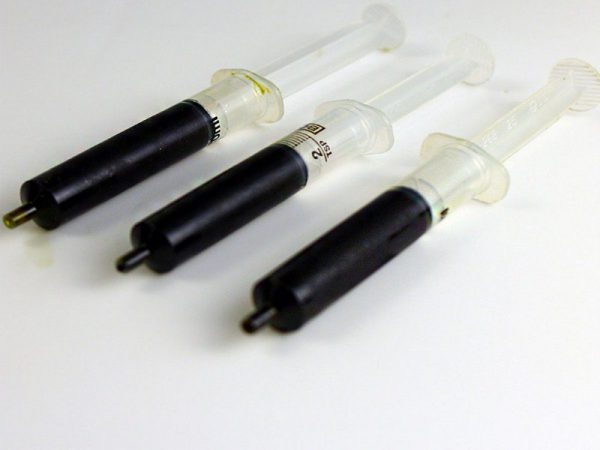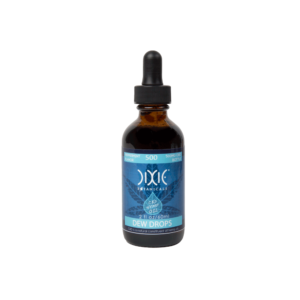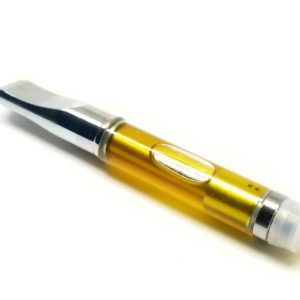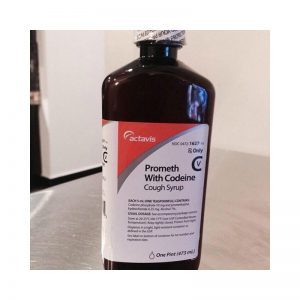Description
More about Rick Simpson Oil
Who is Rick Simpson and why did he create RSO?
In 2003, Canadian Rick Simpson was diagnosed with basal cell carcinoma, a skin cancer. Soon after his cancer diagnosis, he read a study from the Journal of the National Cancer Institute that showed THC could kill cancer cells in mice. Simpson was already a fan of medical cannabis — he’d been using it to treat tinnitus and dizzy spells caused after falling and hitting his head several years earlier — so he decided to try to treat his skin cancer with cannabis oil.
According to Simpson’s account, he whipped up a homemade extract, applied it directly to the cancerous moles, and covered them with a bandage. Four days later, he removed the bandages and he claimed the growths were gone.
Simpson then began growing and cultivating his own cannabis to perfect a custom oil blend, and, after health and government groups like the Canadian Cancer Society ignored his discovery, he set out to promote the medicinal effects of cannabis to others. He created a YouTube documentary, “Run From the Cure,” and wrote a book, “The Rick Simpson Story.”
Until 2009, when he was ordered to stop for legal reasons, he gave away his oil — dubbed Rick Simpson Oil, or RSO — for free. Since 2013, Simpson has lived in Europe, and, according to his website, he cannot legally enter the U.S. due to the criminal background he received from the Canadian government. buy Rick Simpson Oil online
Controversy and Copycats
While one of the most well-known personalities within the medical cannabis community, Simpson has also drawn some controversy and skepticism in his career. He has drawn some ire from physicians and medical professionals for his lack of scientific research or clinical trials. Simpson still has his share of defenders who have claimed to have successfully used his blend of oil to treat cancer.
On his website, Simpson states that he no longer produces or supplies his oil due to its illegality in many countries. He makes note to disassociate himself with any online vendors who claim to supply “Rick Simpson Oil.” Simpson claims that the only way to ensure patients have his blend of oil is for patients to produce it themselves. Simpson’s site has instructions and an FAQ.
However, in the US be aware it’s often illegal at the federal level and in most local jurisdictions, even if cannabis is legal in that state. In addition, making RSO can be dangerous — work areas need to be well ventilated with nothing (sparks, open flames, etc.) that could ignite the solvent fumes. Despite Simpson’s claims, if you have the option, you may want to just search for where to buy RSO locally.
The process manufacturers use to produce RSO is relatively simple. The plant material is crushed and placed in a container (Simpson instructs to use a bucket). The plant material is washed with a solvent (typically naphtha, ethanol, or 99% isopropyl alcohol) to dissolve the active compounds. The solution is then strained into another container, washed again, then mixed. The solution is strained one final time before it is transferred to the original container. The plant material is then discarded. The solution is then filtered to remove any remaining plant matter.
Next, the solution is boiled. This removes the solvent from the solution. The solvent removal process must be done in a well-ventilated area with fans blowing away the resulting fumes. buy Rick Simpson Oil online
With the solvents effectively boiled off, the solution is then poured into a stainless steel pan and put into a dehydrator to remove any residual solvent. Once all the solvents have effectively been removed, the solution is cooled and placed into a syringe or capsules. buy Rick Simpson Oil online
How to use RSO
Simpson has dosage instructions on his site, but keep in mind they have not been vetted by medical researchers. Dosages vary from person to person depending on a lot of factors, including the potency of the RSO.
RSO is typically not smoked. It is applied in the following ways:
- As a topical rubbed onto the surface of the skin
- As a sublingual with drops under the tongue; this has the fastest absorption rate
- As a capsule taken orally; this has the slowest-acting effects, but the effects would last longer
The difference between RSO and CBD oil
CBD oil contains only CBD, often from industrial hemp plants, while RSO has a high concentration of THC — at least 20 percent — and the full range of cannabinoids found in the cannabis plant.
In 2011, physician and researcher Ethan Russo found that the medicinal effects of CBD increase when they’re combined with other cannabinoids. Simpson claims that his oils produced two to six percent (2%-6%) CBD, but emphasizes that THC content needs to be high in order to treat cancer.
Although it is popularly believed that CBD oil is only for epileptic patients and RSO oil is only for cancer patients, early research, including information reported by the US National Cancer Institute and the American Cancer Society, has indicated that CBD possesses cancer-inhibiting properties in some types of tumors. Research is still preliminary, because of the prohibition of cannabis in many countries, so the full effectiveness and side effects of cannabinoids to treat cancer are not well established yet.
That said, do keep in mind RSO is highly intoxicating because of the THC. In other words, it’ll get you high while CBD won’t.
Is RSO considered a Full Spectrum Cannabis Oil?
Full Spectrum Cannabis Oil (FSCO), sometimes referred to as Full Extract Cannabis Oil (FECO), is a term used for cannabis oil products that capture the full range of bioactive compounds created within the plant’s glandular trichomes without altering their composition in the process.
This includes flavonoids, phenols, fatty acids, and, most importantly, a variety of terpenes and cannabinoids in their natural acid form.
While the RSO extraction process is capable of extracting the full range of compounds, the process of removing the solvent from the solution requires heat. Heat changes the cannabinoids from their acid form into their neutral, or activated, form in a process called decarboxylation (i.e. THCA decarboxylates into THC and CBDA into CBD). The heat also volatilizes most of the terpenes that were initially extracted, leaving an oil that may not have all the bioactive compounds that were available in the plant’s trichome glands. buy Rick Simpson Oil online




Reviews
There are no reviews yet.